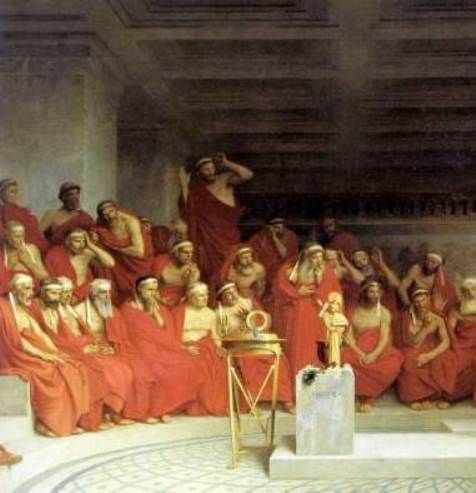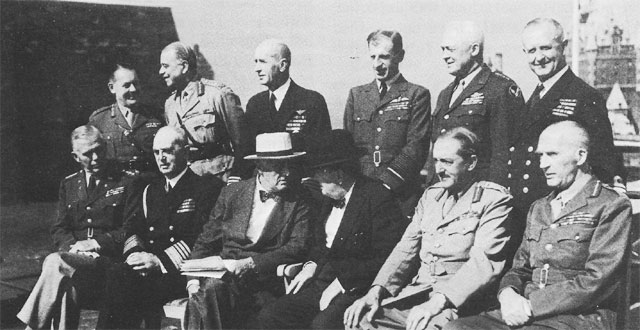For whom the bell Dengs, it Dengs for Lee
Monday, March 23rd, 2015[rang by Lynn C. Rees]
Elite mouthpiece Charlie Rose once asked former Singapore Prime Minister Lee “Harry” Kuan Yew which of the many, many, many, many world leaders he’d met in his long, long, long, long career he most admired. Lee chose Chairman of the Central Advisory Commission of the Chinese Communist Party Deng Syauping. Lee especially admired Deng for his world-historic “adaptability”.
Flashback: 1978. Deng makes Deng’s first state visit to Singapore. Deng is flummoxed by Singapore’s prosperity (Deng’s briefings were inadequate). Deng asks Lee how Lee made Singapore prosperous. Lee tells Deng how Singapore climbed the food chain: First, attract foreign direct investment with cheap labor. Second, become subcontractors. Second, became contractors. Third, become competitors. Fourth, learn as you go. Veteran Marxist Deng muses aloud: Singapore’s created an egalitarian society using capitalism. Lee happily seconds Deng’s thought. Deng flies back to China. Deng applies the Lee model to China. Everyone lives happily ever after.
10. It is said that at one of their meetings in the gymnasium Scipio and Hannibal had a conversation on the subject of generalship, in the presence of a number of bystanders, and that Scipio asked Hannibal whom he considered the greatest general, to which the latter replied, “Alexander of Macedonia.”
To this Scipio assented since he also yielded the first place to Alexander. Then he asked Hannibal whom he placed next, and he replied, “Pyrrhus of Epirus,” because he considered boldness the first qualification of a general; “for it would not be possible,” he said, “to find two kings more enterprising than these.”Scipio was rather nettled by this, but nevertheless he asked Hannibal to whom he would give the third place, expecting that at least the third would be assigned to him; but Hannibal replied, “To myself; for when I was a young man I conquered Spain and crossed the Alps with an army, the first after Hercules. I invaded Italy and struck terror into all of you, laid waste 400 of your towns, and often put your city in extreme peril, all this time receiving neither money nor reinforcements from Carthage.”
As Scipio saw that he was likely to prolong his self-laudation he said, laughing, “Where would you place yourself, Hannibal, if you had not been defeated by me?” Hannibal, now perceiving his jealousy, replied, “In that case I should have put myself before Alexander.” Thus Hannibal continued his self-laudation, but flattered Scipio in a delicate manner by suggesting that he had conquered one who was the superior of Alexander.
Like the great Carthaginian (as framed in Appian’s fable) but with greater circumspection, Lee gives Lee a hearty backslap for the ages here by promoting Deng to virtual Leeness, making Deng almost a Lee Kuan Yew, Jr. Deng is great for”adaptibility”. Translation: Deng is great for “adaptibility” because he adapted by following Lee, who’s also great for “adaptibility”. Deng is great because Lee is great. While Deng did great things, Lee claims, also circumspectly, a greater priority: Lee’s been there, done that, got the T-shirt.
There is merit here. If Lee’s memory was as accurate as it was convenient, Lee was one of the most significant figures of the twentieth century. Deng Syauping stepped out of the way of one fifth of humanity’s rise from absolute poverty to genteel poverty. For that, Deng is one of the most adequate leaders of the twentieth century. If Lee helped Deng rise to adequacy, he deserves his adequate share of significance.
Lee is a frequent candidate for great authoritarian of the late twentieth century, the sort of man that, if they could be produced on demand, would euthanize democracy. That great authoritarians are not produced on demand continues to be a problem. Lee proved resiliently traditional in his attempts to solve the problem: Placeholder minion. Check. Dynastic succession. Check.
Whether history gives Lee as hearty a backslap as Lee (through Deng) gave Lee will depend upon whether Lee’s great authoritarianism continues to be great authoritarianism without its great authoritarian. Cárdenas’ “perfect dictatorship” endured 54 years. Stalin’s dead cat bounce reached 1991. Mau’s dead cat bounce carried a Deng, a Jyang, a Hu, and now a Syi. And those cabals had some component of rotation of elites built in. Lee’s die is cast with old school hereditary monarchy. His dynastic successor has an heir and two spares (three spares if Singapore doesn’t follow Salic Law). Time will tell if Lee Kuan Yew wins the genetic lottery now that he’s no longer around to play retired emperor.






